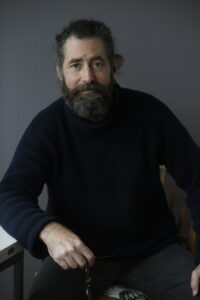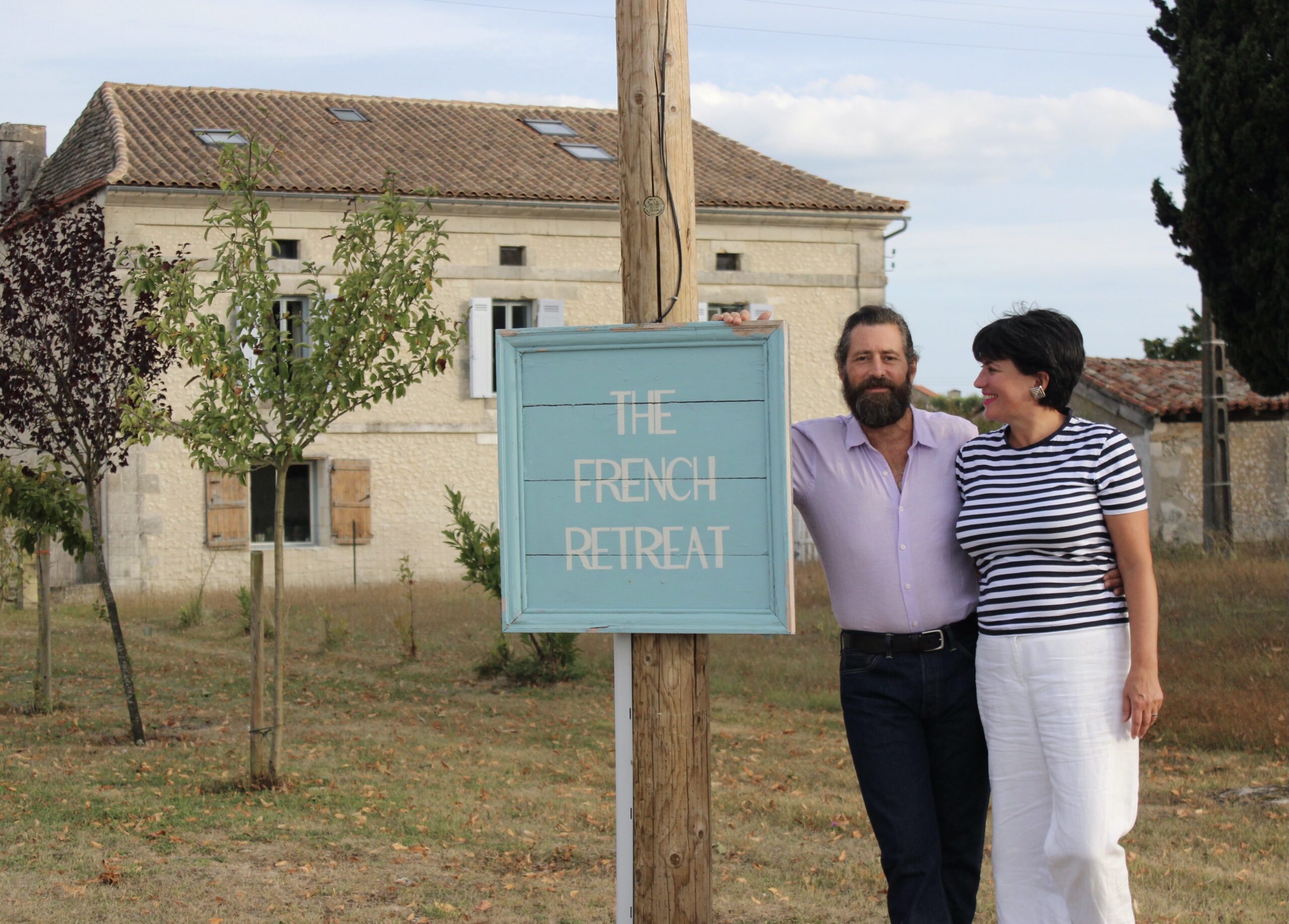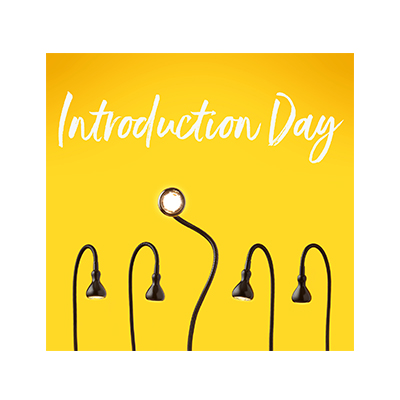Matthew Pruen has built on a decade of working with couples in one-to-one and group settings. He’s also worked as a Hoffman facilitator since 2008. Emma Pruen is a Family & Systemic Constellations coach, who did the Hoffman Process in 2001. Together, they host year-round personal growth and creative workshops at the French Retreat, their beautiful home and retreat venue in Bordeaux.
 ‘When we fall in love, when heartbeats are skipped and we find ourself saying: “I have found the one who I will commit to and who will commit to me,’ we immerse ourselves into one of life’s most beautiful experiences. All our doubts and shame beliefs get neutralised and for a heavenly moment we start to feel okay about ourselves.
‘When we fall in love, when heartbeats are skipped and we find ourself saying: “I have found the one who I will commit to and who will commit to me,’ we immerse ourselves into one of life’s most beautiful experiences. All our doubts and shame beliefs get neutralised and for a heavenly moment we start to feel okay about ourselves.
Being accepted and desired by someone who we accept and desire is, for the time being at least, proof positive that we, ourselves, are worthy of love. We feel loveable. We feel worthy. This rare outbreak of self-worth contrasts strikingly with the legacy of doubt and shame that hangs over from our formative years. This belief motivates us more primally, more viscerally than perhaps any other impulse short of the question of survival itself.
When we have such an experience, we become intoxicated. Literally. The high of romantic love is very simply the enormous relief attached to the tentative thought that if this beautiful creature loves me, then I must be loveable.
It is a relief because that deeply suppressed shame belief has been gnawing at us since we were tiny. A lifetime of undermining our sense of worthiness, sabotaging our dreams and limiting our potential manifests in all the choices we make and avoid making. Anxiety, depression, self-doubt, self-criticism, procrastination, avoidance, isolation and addiction, in little and big ways, litter our lives leaving loss, grief and fear in their wake. So, emerging from this pit of despair – especially in the arms of the object of our desire – is nothing short of transcendent. The curve on the graph is almost vertical. Our trajectory from a continuum of low-level self-doubt to the pinnacle of self-belief is a rush like no other.
Love, we are assured by everyone, is enough. If my soulmate loves me and I love them, that should do it. So we commit, be it with marriage, a mortgage or a baby, into a life we are promised will be ‘Happy Ever After’; but there’s a catch.
Every life, and therefore every relationship, is subject to the incontrovertible truth that no matter how lucky or successful we are, no matter how virtuous or clever, no matter how compatible or well-chosen our partner and finally no matter how much they love us and we love them a number of unfortunate dynamics will most certainly occur, and often.
Life, for everyone, will contain varying degrees of injustice, threat and loss.
Fortunately we have evolved as a species and developed the capacity to process and cope with this through our grieving emotions which are anger, fear and sadness.
The problem is that very few of us received a helpful emotional education in our formative years and so we have learnt to mistrust and fear these emotions – in us and others.
For many anger was modelled to us as shouting, banging of fists, slamming of doors, verbal abuse, threats of violence or worse. As children these experiences will have been to a lesser or greater extent, traumatic – meaning a perceived rupture in our vital relationship with our parents and care-givers. When we were small, we will have experienced this a potential threat to our survival.
As for our own anger – the naturally intense feeling that arises in us when we feel the routine unfairness of life – it’s rare that we will have had it validated. Equally, it’s rare that our fear and sadness were tolerable to our parents. Even the most loving parents tend to rush to comfort away the perceived distress their children are experiencing.
When this happens – and even with such kind words as “there, there” or “there’s nothing to be frightened of” or “cheer up” – the child gets the message that their naturally lived experience of an emotional response is a kind of perversity. It’s not OK. I’m not OK.
One way or another we grow up mistrusting the anger, fear and sadness of others and, crucially, our own too, which leaves us woefully ill-equipped to manage the natural and normal ups and downs of every long term relationship.
This is what we, that is Matthew and Emma Pruen, are here for: helping you navigate life’s relationship challenges, whether you are in a great relationship and want to keep it that way, in relationship which is not thriving, or you’ve given up on ever finding a happy alternative to being single, we can support you with experiences, tools and techniques for finding a love that lasts and deepening your connection once it has passed the romantic high.
The 5 skills we need to master are:
- How to get out of power struggle and reestablish connection and intimacy
- Communication skills – learning how to express our needs healthily, and how to really listen and be heard
- Intimacy and commitment – recognising the fears we all share and how to overcome them
- How the past is present in relationships – exploring the impact of our past and learning ways to do things differently.
- Healing our unmet needs from childhood – learning how to ‘self-parent’
We have a series of options for helping all kinds of people in all kinds of states, from individual coaching to group workshop to the private bespoke Couple’s Course. We work in person in France and the UK, as well as online.
You can find details of the relationship workshops we run in conjunction with Hoffman here, in France, here and you can find out more about Matthew’s coaching work here
Hoffman Relationship Workshops with Matthew and Emma







 Sign up to receive monthly newsletters from Hoffman
Sign up to receive monthly newsletters from Hoffman